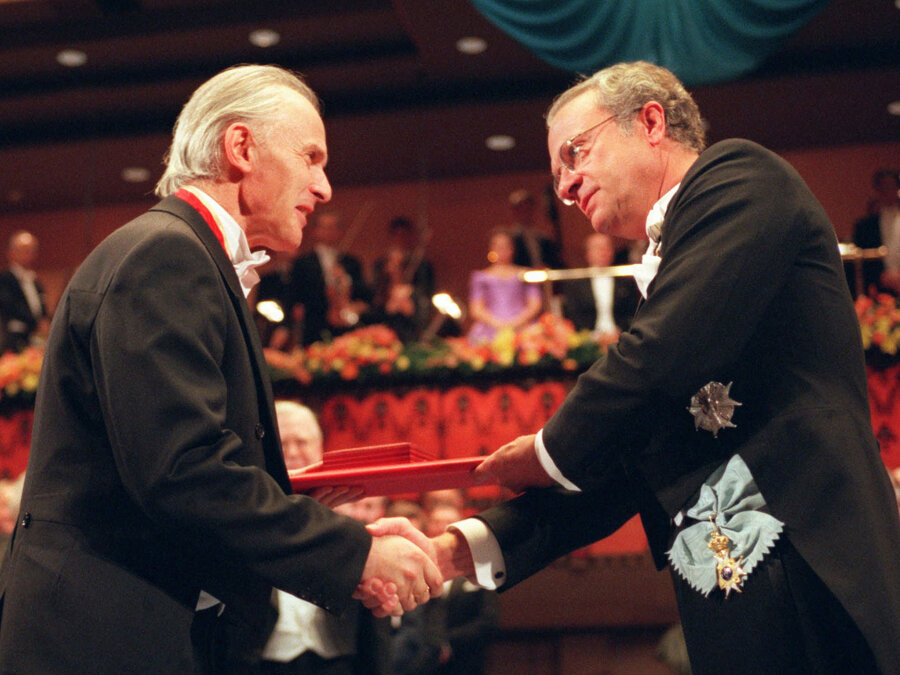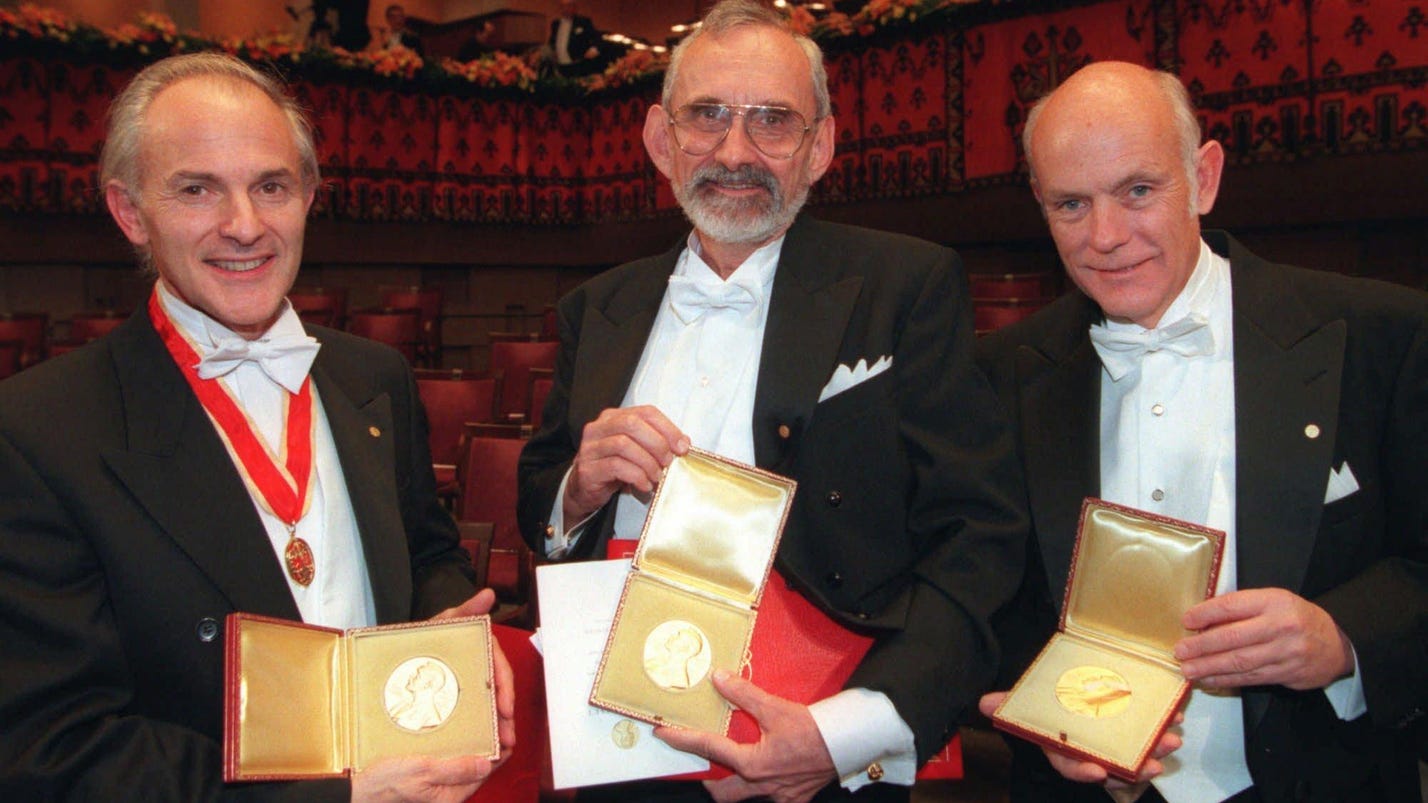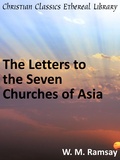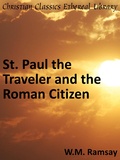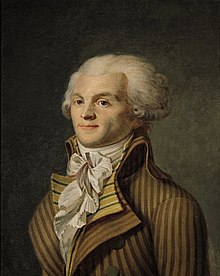__________________
Brian Aldiss – John Osborne – successful but unhappy (42/79)
Published on May 17, 2017
JOHN HEILPERN on John Osborne (full episode)
FRANCIS SCHAEFFER
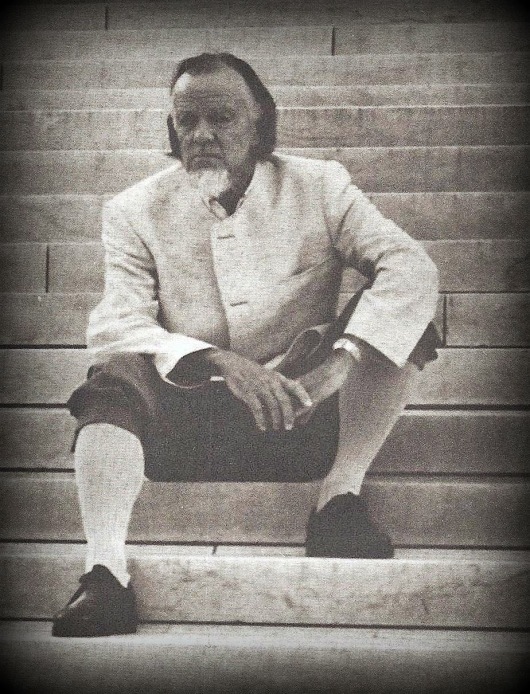
Francis Schaeffer comments on William Burroughs:
I am going to read first from Douglas M. Davis article, “The New Mood: An Obsession with the Absurd.” National Observer (February 1965), and then comment on it.
“William Burroughs, 50, is the most controversial of them all, former drug addict, he wrote an impressionistic intensely detailed account of his experience and published it in 1962 under the title NAKED LUNCH.”
If there is anything that guarantees to make you nauseated it is NAKED LUNCH, and that is anybody, not just Christians.
“The book provoked a lively debate that is still in progress filled with pages and pages of what seemed to be gratuitous pornography. Critic John Wayne labeled NAKED LUNCH the merest trash, not worth a second glance. Mary McCarthy didn’t agree. She called it the most important novel of the age and the epic of the century.”
That is because Mary McCarthy really belongs in the same thing. I saw Mary McCarthy on the BBC-3 television program when we were in England coming back from my last lecture time in the States. It was a discussion on censorship with Kenneth Tynan on November 13, 1965 and suddenly while discussing censorship Tynan used the most famous of all four letter words on TV and Mary McCarthy just laughed. I was fascinated and I thought the BBC was further along than I thought it was. Then the war started in Parliament the next day, embarrassment and finally apologies for the use of the famous four letter word on the BBC. Why do these men smash things this way? Mary McCarthy would think NAKED LUNCH is a good book because she belongs in the same black bath.
“Mr. Burroughs new novel NOVA EXPRESS will hardly settle matters. Like NAKED LUNCH it is impressionistic although not filled with pornography but with rough brutal language. If ever a book was written with rage it is this one. One doesn’t have to be a psychologist to perceive the moralist behind the mask of William Burroughs. Indeed, it is puritanical anger in the man that both saves the books from the charge of depravity and makes them unreadable.”

I would say that is right. These men are not cabbages. These men are like John Osborne. They are idealists without an ideal. An idealist for which no ideal exist as far as they are concerned. So you can say they are puritanical in the sense they are furious simply because they want values and they can’t find them, so they are smashing. And again we ask why do they smash things so? I will say two things about these men. It is always the same. FIRST, aren’t they horrible? We are at war with these men. They are trying to destroy us. If I am a Christian and I’m reading in an uncritical way and naive fashion they will destroy us. They will destroy everything they touch. It is like a real breath from the devil and they are destructive and then SECONDLY, they are really seeking purpose and they are really seeking values. They are not nobody. You can say they are horrible, but you can’t say they are nobody.
John Osborne 1957
___
John Osborne
| John Osborne | |
|---|---|

John Osborne in 1971
|
|
| Born | 12 December 1929 Fulham, London, England |
| Died | 24 December 1994 (aged 65) Clun, Shropshire, England |
| Occupation |
|
| Nationality | British |
| Period | 1950–92 |
| Genre | |
| Literary movement | Angry Young Man |
| Notable works | Look Back in Anger The Entertainer Inadmissible Evidence |
| Spouse | Pamela Lane Mary Ure Penelope Gilliatt Jill Bennett Helen Dawson |
John James Osborne (Fulham, London, 12 December 1929 – 24 December 1994) was an English playwright, screenwriter and actor, known for his excoriating prose and intense critical stance towards established social and political norms. The success of his 1956 play Look Back in Anger transformed English theatre.
In a productive life of more than 40 years, Osborne explored many themes and genres, writing for stage, film and TV. His personal life was extravagant and iconoclastic. He was notorious for the ornate violence of his language, not only on behalf of the political causes he supported but also against his own family, including his wives and children.
Osborne was one of the first writers to address Britain’s purpose in the post-imperial age. He was the first to question the point of the monarchy on a prominent public stage.[citation needed] During his peak (1956–1966), he helped make contempt an acceptable and now even cliched onstage emotion, argued for the cleansing wisdom of bad behaviour and bad taste, and combined unsparing truthfulness with devastating wit.[citation needed]
Contents
[hide]
Early life[edit]
Osborne was born on 12 December 1929[1] in London, the son of Thomas Godfrey Osborne, a commercial artist and advertising copywriter of South Welshextraction, and Nellie Beatrice, a Cockney barmaid.[2]
In 1935 the family moved to the north Surrey suburb of Stoneleigh, near Ewell, in search of a better life, though Osborne would regard it as a cultural desert – a schoolfriend declared subsequently that “he thought [we] were a lot of dull, uninteresting people, and probably a lot of us were. He was right.”[3] He adored his father and hated his mother, who he later wrote taught him “The fatality of hatred … She is my disease, an invitation to my sick room,” and described her as “hypocritical, self-absorbed, calculating and indifferent.”
Thomas Osborne died in 1941, leaving the young boy an insurance settlement which he used to finance a private education at Belmont College, a minor public school in Devon.[4] He entered the school in 1943, but was expelled in the summer term of 1945, after whacking the headmaster, who had struck him for listening to a forbidden broadcast by Frank Sinatra. A School Certificate was the only formal qualification he acquired, but he possessed a native intelligence.
After school, Osborne went home to his mother in London and briefly tried trade journalism. A job tutoring a touring company of junior actors introduced him to the theatre. He soon became involved as a stage manager and acting, joining Anthony Creighton‘s provincial touring company.[5] Osborne tried his hand at writing plays, co-writing his first, The Devil Inside Him, with his mentor Stella Linden, who then directed it at the Theatre Royal in Huddersfield in 1950. In June 1951 he also married Pamela Lane.[6] His second play Personal Enemy was written with Anthony Creighton (with whom he later wrote Epitaph for George Dillon staged at the Royal Court in 1958). Personal Enemy was staged in regional theatres before he submitted Look Back in Anger.
Look Back in Anger[edit]
Written in 17 days in a deck chair on Morecambe pier where Osborne was performing in a creaky rep show called Seagulls over Sorrento, Look Back in Angerwas largely autobiographical, based on his time living, and arguing, with Pamela Lane in cramped accommodation in Derby while she cuckolded him with a local dentist. It was submitted to agents all over London and returned with great rapidity. In his autobiography, Osborne writes: “The speed with which it had been returned was not surprising, but its aggressive dispatch did give me a kind of relief. It was like being grasped at the upper arm by a testy policeman and told to move on”. Finally it was sent to the newly formed English Stage Company at London’s Royal Court Theatre.
Formed by actor-manager and artistic director George Devine, the company had seen its first three productions flop and urgently needed a success if it was to survive. Devine was prepared to gamble on this play because he saw in it a ferocious and scowling articulation of a new post-war spirit. Osborne was living on a leaky houseboat on the River Thames at the time with Creighton, stewing up nettles from the riverbank to eat. So keen was Devine to contact Osborne that he rowed out to the boat to tell him he would like to make the play the fourth production to enter repertory. The play was directed by Tony Richardson and starred Kenneth Haigh, Mary Ure and Alan Bates. It was George Fearon, a part-time press officer at the theatre, who invented the phrase “angry young man“. Fearon told Osborne that he disliked the play and feared it would be impossible to market.[7]
In 1993, a year before his death, Osborne wrote that the opening night was “an occasion I only partly remember, but certainly with more accuracy than those who subsequently claimed to have been present and, if they are to be believed, would have filled the theatre several times over”. Reviews were mixed. Most of the critics who attended the first night felt it was a failure, and it looked as if the English Stage Company was going to go into liquidation.[8] The Evening Standard, for example, called the play “a failure” and “a self-pitying snivel”. But the following Sunday, Kenneth Tynan of The Observer – the most influential critic of the day – praised it to the skies: ‘I could not love anyone who did not wish to see Look Back in Anger,’ he wrote, “It is the best young play of its decade”. Harold Hobson of The Sunday Times called Osborne “a writer of outstanding promise”. During production, the married Osborne began a relationship with Mary Ure, and would divorce his wife, Pamela Lane, to marry Ure in 1957.
The play became an enormous commercial success, transferring to the West End and to Broadway, touring to Moscow and a film version was released in May 1959 with Richard Burton and Mary Ure in the leading roles. The play turned Osborne from a struggling playwright into a wealthy and famous angry young man and won him the Evening Standard Drama Award as the most promising playwright of 1956.
The Entertainer and into the 1960s[edit]
Osborne by Irish artist Reginald Gray, London (1957)
When he first saw Look Back in Anger, Laurence Olivier was dismissive, viewing the play as unpatriotic and bad theatre, “a travesty on England”.[9] At the time, Olivier was making a film of Rattigan’s The Prince and the Showgirl co-starring Marilyn Monroe, and she was accompanied to London by her then-husband Arthur Miller. Olivier asked the American dramatist what plays he might want to see in London. Based on its title, Miller suggested Osborne’s work; Olivier tried to dissuade him, but the playwright was insistent and the two of them saw it together.
Miller found the play revelatory, and they went backstage to meet Osborne. Olivier was impressed by the American’s reaction, and asked Osborne for a part in his next play. John Heilpern suggests the great actor’s about-face was due to a midlife crisis, Olivier seeking a new challenge after decades of success in Shakespeare and other classics, and fearful of losing his pre-eminence to this new kind of theatre. George Devine, artistic director of the Royal Court, sent Olivier the incomplete script of The Entertainer (1957, film version released in 1960) and Olivier initially wanted to play Billy Rice, the lead character’s decent elderly father. On seeing the finished script, he changed his mind and took the central role as failing music-hall performer Archie Rice, playing to great acclaim both at the Royal Court and then in the West End.[9]
The Entertainer uses the metaphor of the dying music hall tradition and its eclipse by early rock and roll to comment on the moribund state of the British Empire and its eclipse by the power of the United States, something flagrantly revealed during the Suez Crisis of November 1956 that elliptically forms the backdrop to the play. An experimental piece, The Entertainer was interspersed with music hall performances. Most critics praised the development of an exciting writing talent:
A real pro is a real man, all he needs is an old backcloth behind him and he can hold them on his own for half an hour. He’s like the general run of people, only he’s a lot more like them than they are themselves, if you understand me.
The words are Billy Rice’s, though as with much of Osborne’s work they could be said to represent his own sentiments, as with this quote from Look Back in Anger:
Oh, heavens, how I long for a little ordinary human enthusiasm. Just enthusiasm—that’s all. I want to hear a warm, thrilling voice cry out ‘Hallelujah! Hallelujah. I’m alive!’
Osborne followed The Entertainer with The World of Paul Slickey (1959) a musical that satirizes the tabloid press, the unusual television documentary play A Subject of Scandal and Concern (1960), and the double bill Plays for England, comprising “The Blood of the Bambergs” and “Under Plain Covers” (1962).
Luther, depicting the life of Martin Luther, the archetypal rebel of an earlier century, was first performed in 1961; it transferred to Broadway and won Osborne a Tony Award. Inadmissible Evidence was first performed in 1964. In between these plays, Osborne won an Oscar for his 1963 screenplay adaptation of Tom Jones. A Patriot for Me (1965) drawing on the Austrian Redl case, is a tale of turn-of-the-century homosexuality and espionage which helped to end (along with Saved by Edward Bond) the system of theatrical censorship under the Lord Chamberlain.
Both A Patriot For Me and The Hotel in Amsterdam (1968) won Evening Standard Best Play of the Year awards. The latter play features three showbiz couples in a hotel suite, having fled a tyrannical and unpleasant movie producer, referred to as “K.L”. John Heilpern[10] confirms the rumor that “K.L” was in fact a portrait of Tony Richardson, seen through Osborne’s eyes. Laurie, a screenwriter, a role created by Paul Scofield, is a self-portrait: Osborne at mid-career.
1970s and later life[edit]
John Osborne’s plays in the 1970s included West of Suez which starred Ralph Richardson, A Sense of Detachment, first produced at the Royal Court in 1972, and the disappointing Watch It Come Down, first produced at the National Theatre, starring Frank Finlay.
In this period, Osborne made his best-remembered acting appearance, lending gangster Cyril Kinnear a sense of civil menace in Get Carter (1971). Later, he appeared in Tomorrow Never Comes (1978), as an actor, and Flash Gordon (1980).[11]
Throughout the 1980s, Osborne played the role of Shropshire squire with great pleasure and a heavy dose of irony. He wrote a diary for The Spectator.[12] He opened his garden to raise money for the church roof, from which he threatened to withdraw covenant-funding unless the vicar restored the Book of Common Prayer (he had returned to the Church of England in about 1974).[13]
In his latter years, Osborne published two remarkably frank volumes of autobiography, A Better Class of Person (Osborne, 1981) and Almost a Gentleman(Osborne, 1991). A Better Class of Person (1985) was filmed by Thames Television featuring Eileen Atkins and Alan Howard as his parents and Gary Capelin and Neil McPherson as Osborne. It was nominated for the Prix Italia. At his memorial service in 1995, a playwright of the next generation, David Hare, said:
It is, if you like, the final irony that John’s governing love was for a country which is, to say the least, distrustful of those who seem to be both clever and passionate. There is in English public life an implicit assumption that the head and the heart are in some sort of opposition. If someone is clever, they get labelled cold. If they are emotional, they get labelled stupid. Nothing bewilders the English more than someone who exhibits great feeling and great intelligence. When, as in John’s case, a person is abundant in both, the English response is to take in the washing and bolt the back door.
His last play was Déjàvu (1991), a sequel to Look Back in Anger. Various newspaper and magazine writings appeared in a collection entitled Damn You, England (1994), while the two volumes of autobiography were reissued as “Looking Back – Never Explain, Never Apologise” (1999).
Critical responses, idols and effect[edit]
Osborne was a great fan of Max Miller[14] and saw parallels between them. ‘I love him, (Max Miller) because he embodied a kind of theatre I admire most. ‘Mary from the Dairy’ was an overture to the danger that (Max) might go too far. Whenever anyone tells me that a scene or a line in a play of mine goes too far in some way then I know my instinct has been functioning as it should. When such people tell you that a particular passage makes the audience uneasy or restless, then they seem (to me) as cautious and absurd as landladies and girls-who-won’t.’[15]
Osborne’s work transformed British theatre. He helped to make it artistically respected again, throwing off the formal constraints of the former generation, and turning our attention once more to language, theatrical rhetoric, and emotional intensity. He saw theatre as a weapon with which ordinary people could break down the class barriers and that he had a ‘beholden duty to kick against the pricks’. He wanted his plays to be a reminder of real pleasures and real pains. David Hare said in his memorial address:
John Osborne devoted his life to trying to forge some sort of connection between the acuteness of his mind and the extraordinary power of his heart.[16]
Osborne did change the world of theatre, influencing playwrights such as Edward Albee and Mike Leigh. However, work of his kind of authenticity and originality would remain the exception rather than the rule. This did not surprise Osborne; nobody understood the tackiness of the theatre better than the man who had played Hamlet on Hayling Island.[17] He was awarded a Lifetime Achievement Award from the Writer’s Guild of Great Britain.
Osborne joined the Campaign for Nuclear Disarmament in 1959. Later he drifted to the libertarian, unorganized right, considering himself “a radical who hates change”.
Personal life[edit]
Relationships[edit]
Osborne had many affairs over the course of his life and frequently mistreated his wives and lovers. He was married five times, with all except his final marriage being unhappy unions.
His wives and lovers were not always kept apart, either. In his 2006 biography,[18] John Heilpern describes at length a holiday in Valbonne,[19] France, in 1961, that Osborne shared with Tony Richardson, a distraught George Devine, and others. Feigning bafflement over the romantic entanglements of the time, Heilpern writes:
Let’s see: Osborne is on a besieged holiday with his aggrieved mistress[20] while having a passionate affair with his future third wife[21] as the founding artistic director of the Royal Court has a nervous breakdown and his current wife[22] gives birth to a son that isn’t his.[23]
Pamela Lane (1951–57)[6][edit]
In Volume 1 of his autobiography A Better Class of Person, Osborne describes feeling an immediate and intense attraction towards his first wife. The pair were both members of an acting troupe in Bridgwater.
She had just recently shorn her hair down to a defiant auburn stubble and I was impressed by the hostility she had created by this self-isolating act… her huge green eyes which mock or plead affection, preferably both, at least… She startled and confused me… There was no calculation in my instant obsession.
Though Alison Porter in Look Back in Anger was based on Pamela, Osborne describes Lane’s parents as “much coarser” and how at one point they hired a private detective to follow him after a fellow actor was seen ‘fumbling’ with his knee in a teashop. Though he admits that it was true at least that the actor in question did have a homosexual crush on him.
I began to feel surrounded and outflanked by hostility.. I had set off a crest of anger that had not been much more than drowsy before my arrival… It was scarcely important. Pamela was the battlement I was determined on.
Lane and Osborne married in secret in nearby Wells and then left Bridgwater the following Sunday amidst an uneasy truce with Lane’s parents (Osborne’s hated mother was not aware of the union until the couple were divorcing), spending their first night as a married couple together in the Cromwell Road in London.
I was unable to take my eyes off her. I watched her eating, walking, bathing, making-up, dressing, undressing, my curiosity was insatiable. Seeing her clothes lying around the floor (she was hopelessly untidy, in contrast to my own spinsterish habits). There was little doubt in my otherwise apprehensive spirit that I had carried off a unique prize…. Perhaps I interpreted what might have been bland complacency for the complaisance of a generous and loving heart.
The two lived a fairly itinerant and reasonably happy married existence at first, living at a number of digs around London and finding work in London at first, then touring, staying in Kidderminster in Osborne’s case. While Lane’s acting career flourished in Derby, Osborne’s floundered, and she began an affair with a rich dentist. It was an ironic situation as Osborne had been playing a dentist in the company’s production of Shaw‘s You Never Can Tell and that it was Osborne who had inadvertently introduced them by succumbing to a toothache he attributed to marital woes.
This was in the summer of 1955 and Osborne spent much of the next two years before their divorce hoping they would reconcile. In 1956, after Look Back in Anger had opened, Osborne met her at the railway station in York, at which meeting she told Osborne of her recent abortion and enquired after his relationship with Mary Ure, of which she was aware. In April 1957, Osborne was granted a divorce from Lane, on the grounds of his adultery.[24] It later emerged that in the 1980s, Lane and Osborne corresponded frequently and met in secret before he became angered by her request for a loan.[25]
Mary Ure (1957–63)[edit]
Osborne began a relationship with Ure shortly after meeting her when she was cast as Alison in Look Back in Anger in 1956. The affair swiftly progressed; and the two moved in together in Woodfall Road, Chelsea. He wrote later:
Mary was one of those unguarded souls who can make themselves understood by penguins or the wildest dervishes .. I was not in love. There was fondness and pleasure, but no groping expectations, just a feeling of fleeting heart’s ease. For the present we were both content enough.
Contentment, in Osborne’s case, grew into a jealousy and slight contempt for Ure’s stable family background and the banalities of her communication with them and a somewhat withering regard for her acting abilities.
I had stopped concealing from myself, if I ever had, that Mary was not much of an actress. She had a rather harsh voice and a tiny range. Her appearance was pleasing but without any personal sweep to it. Like most actors, she was hysterical when unemployed and resentful when appearing every night to full houses. She also entertained the common belief that a writer is only working when he can be seen head down at his desk. Why are you drinking/dreaming/farting/fornicating instead of making typewriter noises?
There was infidelity on both sides; and, after an affair with Robert Webber, Ure eventually left Osborne for Robert Shaw.
The fact that my coltish liaison with Francine had been pre-empted by Mary’s conduct with Webber explained her oddly restrained behaviour in New York… Betrayal might end in the bedroom but I found it naive to assume it necessarily began there.
Osborne described visiting her after she had left him and having sex with her while she was pregnant with the first of four children she would bear to Shaw. Of their divorce, Osborne wrote of being surprised that she repeatedly refused to return to him treasured postcards drawn for him by his father but is circumspect at her suicide in 1975.
Destiny dragged her so pointlessly from a life better contained by the softly lapping waters of the River Clyde.
This is in marked contrast to his later revelling in the suicide of fourth wife Jill Bennett.[26]
Penelope Gilliatt (1963–68)[edit]
Osborne met his third wife, writer Penelope Gilliatt, initially through social connections, and she then interviewed him.
From Osborne’s autobiography Almost a Gentleman:
It was not so much chastity that troubled me, but the withdrawal of feminine intimacy. And now, here I was, giving a routine interview to a young, animated woman, seemingly very informed and quick to laugh… I was already engaged in the prospect of mild and easy flirtation. I hadn’t marked Penelope down in any appraising way as a future sportive fancy, but I had always been addicted to flirtation as a game worth playing for itself.
One main attraction Penelope held for Osborne was her red hair: “I took red hair to be the mantle of goddesses”. Despite her being married and Osborne knowing her husband, Gilliatt set out to seduce Osborne and succeeded in doing so. “Penelope’s behaviour and my own during the weeks that followed were probably grotesquely indefensible”, he wrote.
Osborne details some of the brazen subterfuges he created in order to commit adultery with Gilliatt before they were married, which included inventing a film festival in Folkestone so they could go away together.[27] Osborne proposed marriage by asking Gilliatt: “Will you marry me? It’s risky, but you’d get fucked regularly.”
Osborne and Gilliatt were married for five years (together for seven), and became the parents of his only natural daughter, Nolan.[28] Osborne had an abusive relationship with his daughter: he cast her out of his house when she was 17; they never spoke again.[29] Osborne and Gilliatt’s marriage suffered through what Osborne perceived to be an unnecessary obsession on her part with her work, writing film reviews for The Observer. “I tried to point out that it seemed an inordinate amount of time and effort to expend on a thousand-word review to be read by a few thousand film addicts and forgotten almost at once.”
He also observed in her a growing pretentiousness. “She was to become increasingly obsessed with fripperies and titles … She took to calling herself ‘Professor Gilliatt’.”[30] Strains in the marriage, exacerbated by Gilliatt’s alcoholism and what Osborne felt was malignant behaviour, led to Osborne conducting an affair with Jill Bennett, soon followed by their marriage.
Jill Bennett (1968–77)[edit]
Osborne had a turbulent nine-year marriage to the actress Jill Bennett, whom he came to loathe. Their marriage degenerated into mutual abuse and insult with Bennett goading Osborne, calling him “impotent” and “homosexual” in public as early as 1971.[31] This was cruelty which Osborne reciprocated, turning his feelings of bitterness and resentment about his waning career onto his wife. Bennett’s suicide in 1990 is generally believed to have been a result of Osborne’s rejection of her. He said of Bennett, “She was the most evil woman I have come across”, and showed open contempt for her suicide.[32]
She was a woman so demoniacally possessed by Avarice that she died of it. How many people have died in such a manner, of Avarice? … This final, fumbled gesture, after a lifetime of glad-rags borrowings, theft and plagiarism, must have been one of the few original or spontaneous gestures in her loveless life… During the nine years I lived beneath the same roof with her, she spent half the day in bed. There was a short period when she took dressage lessons, that most intensive course in aids to severe narcissism.
Osborne seemed to relish reading through obituaries of Bennett and contradicting any points of merit journalists found in her and is scathing of her acting abilities. According to him, she had a voice
sounding like a puppy with a mouthful of lavatory paper. I did everything I could to scrub up her diction, but it never improved. Indeed after we separated and she was consigned to lesser parts it became even worse. During a television series… even by the pier-end standards of sit-com, she was quite incomprehensive and cried out for sub-titles.
Osborne signed off the chapter on Bennett with perhaps some of his most damning prose committed to print.
Adolf [Osborne’s nickname for her] has left half a million to Battersea Dogs’ Home. She never bought a bar of soap in all the time she lived with me. Always, she cried poverty… It is the most perfect act of misanthropy, judged with the tawdry, kindless theatricality she strove to achieve in life. She had no love in her heart for people and only a little more for dogs. Her brand of malignity, unlike Penelope‘s went beyond even the banality of ambition…. Her frigidity was almost total. She loathed men and pretended to love women, whom she hated even more. She was at ease only in the company of homosexuals, who she also despised but whose narcissism matched her own. I never heard her say an admiring thing of anyone… Everything about her life had been a pernicious confection, a sham.
He concluded by stating that his only regret is that he chose not to ‘flob’ (i.e., ‘spit’) in her open coffin.[33]
Helen Dawson (1978–94)[edit]
Helen Dawson (1939–2004) was a former arts journalist and critic for The Observer. This final marriage of Osborne’s, which lasted until his death, seems to have been Osborne’s first happy union. Until her death in 2004, Dawson worked tirelessly to preserve and promote Osborne’s legacy.[34]
Osborne died deeply in debt, his final word to Dawson was: Sorry.[35] After her death in 2004, Dawson was buried next to Osborne.
Vegetarianism[edit]
Graves of Osborne and his fifth wife in Clun churchyard
Around the time of Look Back in Anger, Osborne was a vegetarian, something which was considered unusual at the time. In Almost a Gentleman he gives some insight into this lifestyle choice:
My own vegetarianism had been prompted by self-interest. I wanted to confound my pitted complexion, implacable daily headaches, throbbing glands, dish-cloth hair and dandruff. That my appearance had marginally improved (though not the headaches) was no doubt due a little to less toxic input… Meat could be equated with inner squalor. Vegetarianism might banish that, too.[36]
Death[edit]
After a serious liver crisis in 1987, Osborne became diabetic, injecting insulin twice a day. He died in 1994 from complications from his diabetes at the age of 65 at his home in Clunton, near Craven Arms, Shropshire.[37] He is buried in St George’s churchyard, Clun, Shropshire, alongside his last wife, Helen Dawson, who died in 2004
Archive[edit]
Osborne began placing his papers at the Harry Ransom Center at the University of Texas in Austin in the 1960s, with additions made throughout his life and by relatives in the years after his death. The primary archive is over 50 boxes and includes typescripts and manuscripts for all of his works, correspondence, newspaper and magazine articles, scrapbooks, posters, programs, and business documents.[38]
In 2008, the Ransom Center purchased an additional archive of over 30 boxes that had been held by Helen Dawson Osborne. While largely focusing on the latter years of Osborne’s life, the collection also includes a series of notebooks that he had kept separately from his original archive.[39]
Works[edit]
| Title | Type | Year | Notes |
|---|---|---|---|
| The Devil Inside Him | Theatre | 1950 | with Stella Linden |
| The Great Bear | Theatre | 1951 | blank verse, never produced |
| Personal Enemy | Theatre | 1955 | with Anthony Creighton |
| Look Back in Anger | Theatre | 1956 | |
| The Entertainer | Theatre | 1957 | |
| Epitaph for George Dillon | Theatre | 1958[40] | with Anthony Creighton |
| The World Of Paul Slickey | Theatre | 1959 | [41] |
| A Subject of Scandal and Concern | TV | 1960 | |
| Luther | Theatre | 1961 | |
| The Blood of the Bambergs | Theatre | 1962 | |
| Under Plain Cover | Theatre | 1962 | |
| Tom Jones | Screenplay | 1963 | |
| Inadmissible Evidence | Theatre | 1964 | |
| A Patriot for Me | Theatre | 1965 | |
| A Bond Honoured | Theatre | 1966 | One-act adaptation of Lope de Vega’s La fianza satisfecha |
| The Hotel In Amsterdam | Theatre | 1968 | |
| Time Present | Theatre | 1968 | |
| The Charge of the Light Brigade | Screenplay[42] | 1968 | |
| The Parachute | TV | 1968 | |
| The Right Prospectus | TV | 1970 | |
| West of Suez | Theatre | 1971 | |
| A Sense Of Detachment | Theatre | 1972 | |
| The Gift Of Friendship | TV | 1972 | |
| Hedda Gabler | Theatre | 1972 | Ibsen adaptation |
| A Place Calling Itself Rome | Theatre | (1973)’ | Coriolanus adaptation, unproduced |
| Ms, Or Jill And Jack | TV | 1974 | |
| The End Of Me Old Cigar | Theatre | 1975 | |
| The Picture Of Dorian Gray | Theatre | 1975′ | Wilde adaptation |
| Almost A Vision | TV | 1976 | |
| Watch It Come Down | Theatre | 1976 | |
| Try A Little Tenderness | Theatre | (1978)’ | unproduced |
| Very Like A Whale | TV | 1980 | |
| You’re Not Watching Me, Mummy | TV | 1980 | |
| A Better Class of Person | Book | 1981 | autobiography volume I |
| A Better Class of Person[43] | TV | 1985 | |
| God Rot Tunbridge Wells! | TV | 1985 | |
| The Father | Theatre | 1989 | Strindberg adaptation |
| Almost a Gentleman | Book | 1991 | autobiography volume II |
| Déjàvu | Theatre | 1992 |
Filmography[edit]
- First Love (1970) – Maidanov
- The Chairman’s Wife (1971) – Bernard Howe
- Get Carter (1971) – Cyril Kinnear
- Tomorrow Never Comes (1978) – Lyne
- Flash Gordon (1980) – Arborian Priest
Notes[edit]
- Jump up^ Heilpern 2006, p. 23
- Jump up^ Heilpern 2006, p. 24
- Jump up^ Schoolfriend Hilda Berrington, speaking on Osborne: Angry Man, Channel Four.
- Jump up^ Heilpern 2006, p. 64
- Jump up^ Heilpern 2006, p. 90
- ^ Jump up to:a b John Heilpern (21 November 2010). “Pamela Lane [1930-2010] obituary”. Stalwart of British theatre and first wife of John Osborne. The Guardian, London. Retrieved 19 April 2018.
- Jump up^ Little & McLaughlin 2007, p. 25
- Jump up^ Little & McLaughlin 2007, p. 326, cite a letter from Stephen Daldry “I have in our archives letters from members of the audience from the original production of Look Back in Anger demanding their money back. Had we honoured every one of those requests, this theatre would not have been able to survive”
- ^ Jump up to:a b “‘It’s me, isn’t it?'”. The Guardian. 6 March 2007.
- Jump up^ Heilpern 2006, p. 359
- Jump up^ John Osborne at IMDB
- Jump up^ Times obituary, 27 December 1994
- Jump up^ Heilpern 2006, Chapter 45
- Jump up^ Heilpern 2006, p. 136
- Jump up^ Osborne 1991, pp. 39–40
- Jump up^ Heilpern 2006, p. 477
- Jump up^ Osborne 1991, p. 7
- Jump up^ Heilpern 2006, p. 267
- Jump up^ It was from Valbonne that Osborne wrote the infamous “Damn You, England” letter that was published in Tribune on 18 August 1961. (Heilpern 2006, p. 239)
- Jump up^ Costume designer Jocelyn Rickards
- Jump up^ Gilliatt
- Jump up^ Ure
- Jump up^ Colin, who took the name Osborne but was and is the spitting image of Robert Shaw, with whom Mary Ure was starring at the Royal Court when she became pregnant.
- Jump up^ Osborne, pp. 43–44
- Jump up^ Peter Whitebrook (ed.). 2018. Dearest Squirrel: The Intimate Letters of John Osborne and Pamela Lane. Oberon, pp.416.
- Jump up^ Osborne, pp. 255–9
- Jump up^ Osborne, pp. 181–3, for example
- Jump up^ The name was chosen in honour of Captain Nolan, who led the famous Charge of the Light Brigade in the Crimean War. At the time of her birth, Osborne was researching that war and writing the screenplay of the film his next wife would star in. (Osborne, p. 240)
- Jump up^ Heilpern 2006, pp. 421–2
- Jump up^ Osborne, p. 240
- Jump up^ Heilpern, John (29 April 2006). “A sense of failure”. The Guardian. London. Retrieved 7 May 2010.
- Jump up^ Heilpern writes (Heilpern 2006, p. 443) that the second volume of Osborne’s autobiography was ready to go to press at Faber & Faber. Bennett’s suicide freed Osborne from the restraining order arising from their bitter divorce. He sat down and wrote a new chapter for the book, specifically to excoriate his ex-wife.
- Jump up^ Osborne, p. 259
- Jump up^ “Helen Osborne”. The Independent. London. 19 January 2004. Retrieved 7 May 2010.
- Jump up^ Morrison, Blake (20 May 2006). “Stage-boor Johnny”. The Guardian. London. Retrieved 7 May 2010.
- Jump up^ Osborne, p. 2
- Jump up^ Heilpern 2006, pp. 470–479
- Jump up^ “John Osborne: A Preliminary Inventory of His Papers at the Harry Ransom Humanities Research Center”. norman.hrc.utexas.edu. Retrieved 2017-12-12.
- Jump up^ “John Osborne and Helen Dawson Osborne: A Preliminary Inventory of Their Papers at the Harry Ransom Center”. norman.hrc.utexas.edu. Retrieved 2017-12-12.
- Jump up^ Written before LBIA but not staged at the Royal Court Theatre until 2 years later.
- Jump up^ This musical, performed at the Palace Theatre, was an adaptation of Osborne’s own never-produced play, provisionally titled An Artificial Comedy or Love in a Myth, written in 1955 while he was waiting for Look Back in Anger to be staged. It was a critical and commercial disaster
- Jump up^ Uncredited, due to a script war with director Tony Richardson.
- Jump up^ This was a TV adaptation of the first volume of Osborne’s autobiography
References[edit]
- Heilpern, John (2006). John Osborne: A Patriot for Us. Chatto & Windus. ISBN 978-0-7011-6780-6.
- Osborne, John (1982). A Better Class of Person: An Autobiography, 1929–56 (paperback edition). Penguin Books Ltd. ISBN 978-0-14-006288-5.
- Osborne, John (1991). Almost a Gentleman: An Autobiography, 1955–66 (paperback edition). Faber & Faber. ISBN 0-571-16635-0.
- Little, Ruth; McLaughlin, Emily (2007). The Royal Court Theatre Inside Out. Oberon Books. ISBN 978-1-84002-763-1.
- Doollee.com
External links[edit]
- John Osborne Papers at the Harry Ransom Center
- John Osborne and Helen Dawson Osborne Collection at the Harry Ransom Center
- Select Papers of the English Stage Company at the University of Leeds
 Quotations related to John Osborne at Wikiquote
Quotations related to John Osborne at Wikiquote- John Osborne at the British Film Institute‘s Screenonline
- ‘A Poor Jonah’: John Osborne’s Roads to Freedom describing the discovery of John Osborne’s pre-Look Back in Anger plays at the British Library
- Portraits of John Osborne at the National Portrait Gallery, London

- 1929 births
- 1994 deaths
- BAFTA winners (people)
- Best Adapted Screenplay Academy Award winners
- English dramatists and playwrights
- English Anglicans
- Deaths from diabetes
- People from Fulham
- 20th-century British dramatists and playwrights
- Male screenwriters
- English male dramatists and playwrights
- 20th-century male writers
____
Minerva Cuevas: Bridging Borders | Art21 “Exclusive”
Featured artist is Minerva Cuevas
Minerva Cuevas

Minerva Cuevas was born in Mexico City in 1975. She’s a conceptual and socially-engaged artist who creates sculptural installations and paintings in response to politically-charged events, such as the tension between world starvation and capitalistic excess. Cuevas documents community protests in a cartography of resistance while also creating mini-sabotages—altering grocery store bar codes and manufacturing student identity cards—as part of her non-profit Mejor Vida Corp / Better Life Corporation.
Several of the artist’s works take the form of re-branding campaigns—exhibited as murals and product designs—that question the role corporations play in food production, the management of natural resources, fair labor practices, and evolving forms of neo-colonialism. Cuevas finds provocative ways to intervene in public space, whether through the deployment of billboards and posters, or by hacking public utilities to provide discounted or free services. Cuevas addresses the negative impact that humans have on animals and the environment through sculptures coated in tar and tender paintings of animal rights activists, imagining a society that values all living beings.
Minerva Cuevas attended the Escuela Nacional de Artes Plásticas UNAM (1997). Cuevas’s awards and residencies include the Edith-Ruß-Haus für Medienkunst Stipend in Oldenberg (2004) DAAD Scholarship (2003), and The Banff Centre for the Arts (1998). Cuevas has had major exhibitions at Fundación Jumex Arte Contemporaneo (2013); Kunsthaus Bregenz (2013); Museo de la Ciudad de México (2012); Musée d’art Moderne de la Ville de Paris (2012); Liverpool Biennial (2010); Berlin Biennale (2010); Whitechapel Gallery (2010); KW Institute for Contemporary Art (2010); Centre Pompidou (2010); SFMoMA (2008); Van Abbemuseum (2008); Biennale de Lyon (2007); Kunsthalle Basel (2007); Bienal de São Paulo (2006); and the Istanbul Biennial (2003), among others. Minerva Cuevas lives and works in Mexico City, Mexico.
Links:
Artist’s website
Mejor Vida Corp (Better Life Corporation)
____
Related posts:
FRANCIS SCHAEFFER ANALYZES ART AND CULTURE Part 53 THE BEATLES (Part E, Stg. Pepper’s and John Lennon’s search in 1967 for truth was through drugs, money, laughter, etc & similar to King Solomon’s, LOTS OF PICTURES OF JOHN AND CYNTHIA) (Feature on artist Yoko Ono)
The John Lennon and the Beatles really were on a long search for meaning and fulfillment in their lives just like King Solomon did in the Book of Ecclesiastes. Solomon looked into learning (1:12-18, 2:12-17), laughter, ladies, luxuries, and liquor (2:1-2, 8, 10, 11), and labor (2:4-6, 18-20). He fount that without God in the picture all […]
FRANCIS SCHAEFFER ANALYZES ART AND CULTURE Part 52 THE BEATLES (Part D, There is evidence that the Beatles may have been exposed to Francis Schaeffer!!!) (Feature on artist Anna Margaret Rose Freeman )
______________ George Harrison Swears & Insults Paul and Yoko Lucy in the Sky with Diamonds- The Beatles The Beatles: I have dedicated several posts to this series on the Beatles and I don’t know when this series will end because Francis Schaeffer spent a lot of time listening to the Beatles and talking […]
FRANCIS SCHAEFFER ANALYZES ART AND CULTURE Part 51 THE BEATLES (Part C, List of those on cover of Stg.Pepper’s ) (Feature on artist Raqib Shaw )
The Beatles in a press conference after their Return from the USA Uploaded on Nov 29, 2010 The Beatles in a press conference after their Return from the USA. The Beatles: I have dedicated several posts to this series on the Beatles and I don’t know when this series will end because Francis […]
FRANCIS SCHAEFFER ANALYZES ART AND CULTURE Part 50 THE BEATLES (Part B, The Psychedelic Music of the Beatles) (Feature on artist Peter Blake )
__________________ Beatles 1966 Last interview I have dedicated several posts to this series on the Beatles and I don’t know when this series will end because Francis Schaeffer spent a lot of time listening to the Beatles and talking and writing about them and their impact on the culture of the 1960’s. In this […]
FRANCIS SCHAEFFER ANALYZES ART AND CULTURE Part 49 THE BEATLES (Part A, The Meaning of Stg. Pepper’s Cover) (Feature on artist Mika Tajima)
_______________ The Beatles documentary || A Long and Winding Road || Episode 5 (This video discusses Stg. Pepper’s creation I have dedicated several posts to this series on the Beatles and I don’t know when this series will end because Francis Schaeffer spent a lot of time listening to the Beatles and talking and writing about […]
FRANCIS SCHAEFFER ANALYZES ART AND CULTURE PART 48 “BLOW UP” by Michelangelo Antonioni makes Philosophic Statement (Feature on artist Nancy Holt)
_______________ Francis Schaeffer pictured below: _____________________ I have included the 27 minute episode THE AGE OF NONREASON by Francis Schaeffer. In that video Schaeffer noted, ” Sergeant Pepper’s Lonely Hearts Club Band…for a time it became the rallying cry for young people throughout the world. It expressed the essence of their lives, thoughts and their feelings.” How Should […]
FRANCIS SCHAEFFER ANALYZES ART AND CULTURE Part 47 Woody Allen and Professor Levy and the death of “Optimistic Humanism” from the movie CRIMES AND MISDEMEANORS Plus Charles Darwin’s comments too!!! (Feature on artist Rodney Graham)
Crimes and Misdemeanors: A Discussion: Part 1 ___________________________________ Today I will answer the simple question: IS IT POSSIBLE TO BE AN OPTIMISTIC SECULAR HUMANIST THAT DOES NOT BELIEVE IN GOD OR AN AFTERLIFE? This question has been around for a long time and you can go back to the 19th century and read this same […]
FRANCIS SCHAEFFER ANALYZES ART AND CULTURE PART 46 Friedrich Nietzsche (Featured artist is Thomas Schütte)
____________________________________ Francis Schaeffer pictured below: __________ Francis Schaeffer has written extensively on art and culture spanning the last 2000years and here are some posts I have done on this subject before : Francis Schaeffer’s “How should we then live?” Video and outline of episode 10 “Final Choices” , episode 9 “The Age of Personal Peace and Affluence”, episode 8 […]
FRANCIS SCHAEFFER ANALYZES ART AND CULTURE Part 45 Woody Allen “Reason is Dead” (Feature on artists Allora & Calzadilla )
Love and Death [Woody Allen] – What if there is no God? [PL] ___________ _______________ How Should We then Live Episode 7 small (Age of Nonreason) #02 How Should We Then Live? (Promo Clip) Dr. Francis Schaeffer 10 Worldview and Truth Two Minute Warning: How Then Should We Live?: Francis Schaeffer at 100 Francis Schaeffer […]
FRANCIS SCHAEFFER ANALYZES ART AND CULTURE Part 44 The Book of Genesis (Featured artist is Trey McCarley )
___________________________________ Francis Schaeffer pictured below: ____________________________ Francis Schaeffer “BASIS FOR HUMAN DIGNITY” Whatever…HTTHR Dr. Francis schaeffer – The flow of Materialism(from Part 4 of Whatever happened to human race?) Dr. Francis Schaeffer – The Biblical flow of Truth & History (intro) Francis Schaeffer – The Biblical Flow of History & Truth (1) Dr. Francis Schaeffer […]
_
____________

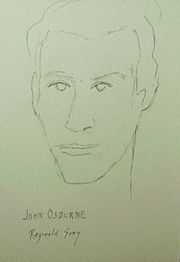
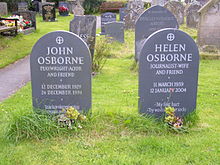

 Bertrand Russell as a child.
Bertrand Russell as a child. On November 21, 2014 I received a letter from
On November 21, 2014 I received a letter from 
 __
__














